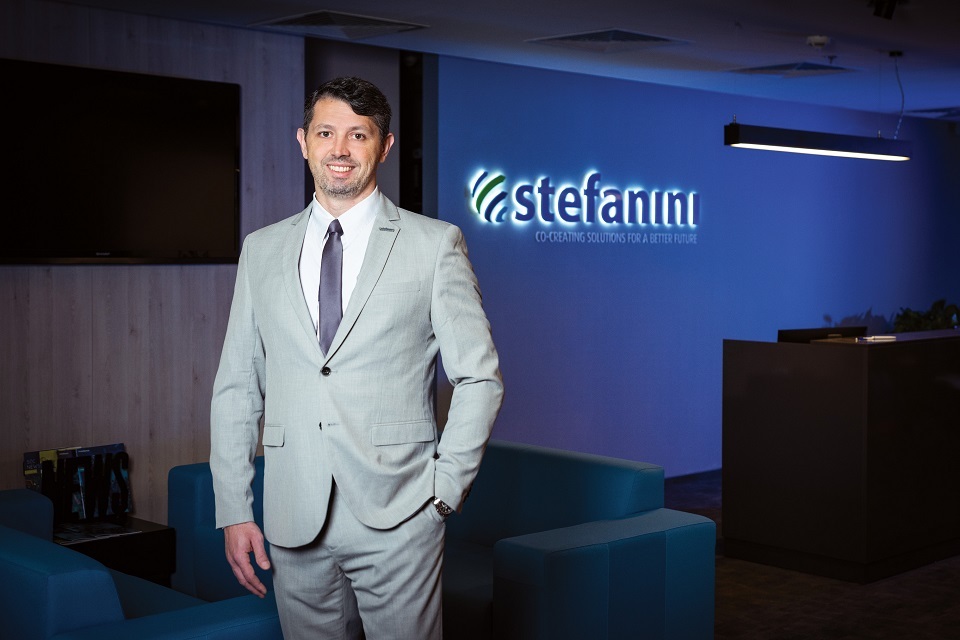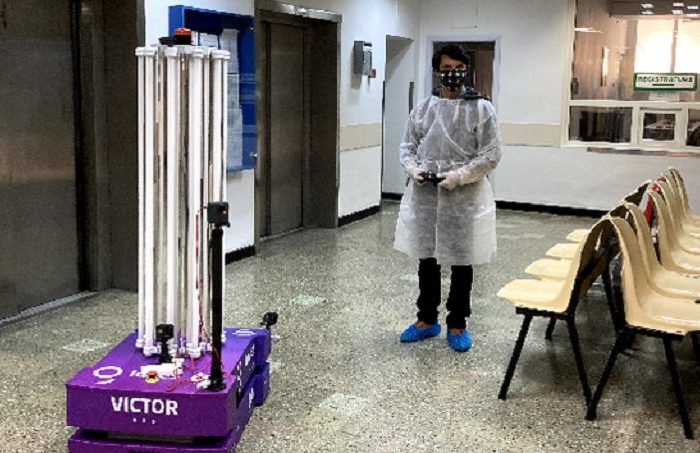Farlei Kothe, CEO Stefanini EMEA: This period is definitely not temporary, but a new status quo

At ten months’ gliding into a new reality of work experience, the companies and managers are looking for the best way to keep the businesses in line and looking towards evolution, despite al the challenges. Some business totally transformed, some others performed a fine tuning of their operations and processes, with an enhanced focus on people and HR strategies.
We recently talked to Farlei Kothe, CEO Stefanini EMEA about the main facts & perspectives of 2021, with a look towards 2021. Read the CEO’s opinions below:
The importance of reshaping the current workplace in the overall context of the work environment
I think it is no longer a choice, but a must. And in fact, even though working from home was a challenge for many of us, especially as it happened so sudden, there are many opportunities that we see along the way. For example, the expansion of the geographic location in the recruitment process allows us to reach more professionals than ever before, as we are now working almost exclusively remote.
We have recently announced the launch of our project, “Stefanini Everywhere.” This initiative explores the implementation of new work models and an expanded talent pool, with a goal to have 50 percent of our workforce working remotely in the next 12 to 18 months, with three types of flexibility. Due to the Coronavirus pandemic, more than 90 percent of our 25,000 employees worldwide adopted remote work and in the past few months we have learned how this model can be effective, create increased engagement, productivity, and reduce costs.
Keeping the work communication effective and fluid
We all had to adapt to the new context, but, as a tech company who had begun the digital transformation long before, we had some processes in place already. Of course, managers and team-leaders played an extremely important role during this time, as they motivated and mobilized their teams and ensured the normal work flow.
In fact, over the last two years, we have been increasingly implementing remote work, wherever the specificity of our clients has allowed this, and we already had many colleagues working this way, either completely or partially – combining office and home work. It has been and remains an extremely useful measure in the IT and ITO industries, as we are facing the challenge of finding skilled and trained people on a high demand market. We have now completely digitalized the onboarding and offboarding processes.
The positive outcomes of WFH system
One of the biggest challenges a company has when 90% of its 25,000 employees from all over the world work from home is definitely cyber security. But we’ve had strategic partnerships and strict protocols in place to ensure data security.
As for the positive outcomes, I am happy to say that the productivity of our employees has not been affected so far. Also, we ran an Employee Wellbeing Survey among our colleagues, and we discovered that many of them found a better balance between professional and personal life during the past months, which, in turn, increased their engagement.
New competencies emerging from virtual working
This is definitely not a temporary period, but a new status quo, so everybody had to get updated as fast as possible with video communication platforms, learn more about cyber security threats and adapt to the new, virtual workplace & teamwork.
What is your sentiment regarding the evolution of workplace in the next years and with what effects on the market and companies?
As remote work is becoming prevalent, it is clear that the competition among companies in this industry and others for the best people in the field will take a new turn. We will not only be competing locally for the highest skilled workforce, but also nationally and internationally. This will also come with an additional challenge of accommodating every employee with the company culture, as the virtual workplace will be more diverse than ever before. It is definitely going to be a new challenge for companies.
Also, the process automation will definitely accelerate, even for companies which never considered this an option before. Companies will have to embrace digital transformation or they are in danger of disappearing from the market altogether.
Sophie platform has helped us implement lots of self-service and intelligent automation in front-end and back-end to automate manual processes and perform data analytics, and we are increasingly offering such solutions to our clients and partners.
















